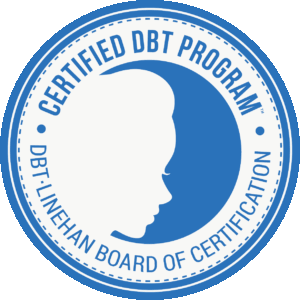Embarking on the journey to recovery from trauma is a profound and intricate process that requires delicate care and specialized support. Trauma counseling stands out as a distinctive approach in fostering healing, offering a unique set of tools and techniques that set it apart from conventional therapeutic methods.
In this blog post, we will delve into the key elements that make trauma counseling exceptional, exploring how it plays a pivotal role in guiding individuals through the challenging terrain of trauma recovery.
Understanding Trauma
Trauma is not a one-size-fits-all experience; it manifests in various forms, including physical, emotional, or psychological harm. Traumatic events can range from natural disasters and accidents to abuse, violence, or loss of a loved one. The aftermath of trauma often leaves individuals grappling with intense emotions, intrusive memories, and a disrupted sense of safety and trust.
The Importance of Trauma-Informed Care
What sets trauma counseling apart begins with its foundation in trauma-informed care. Trauma-informed care recognizes the widespread impact of trauma and the potential retraumatization that can occur within traditional therapeutic settings. It emphasizes creating an environment that fosters safety, trust, and collaboration between the counselor and the survivor.
A Holistic Approach
One of the primary differentiators of trauma counseling is its holistic approach to healing. Rather than focusing solely on symptoms or isolated incidents, trauma counseling considers the individual as a whole, recognizing the interconnectedness of mind, body, and spirit. This holistic perspective enables therapists to tailor their approach to address the multifaceted effects of trauma on a person’s life.
Trauma-informed therapists acknowledge the intricate interplay between psychological and physiological responses to trauma. The recognition of the mind-body connection allows for a more comprehensive understanding of the individual’s experience, paving the way for a more effective and sustainable recovery.
Safety and Trust Building
Creating a safe and trusting therapeutic environment is fundamental in trauma counseling. Many individuals who have experienced trauma may struggle with trust issues, fearing vulnerability and potential retraumatization. Trauma-informed therapists prioritize building a strong therapeutic alliance, emphasizing the importance of trust and safety in the recovery process.
The establishment of a secure and non-judgmental space encourages clients to share their experiences openly, fostering a sense of empowerment and control. Trust-building is an ongoing process, and trauma counseling recognizes that healing begins with a foundation of safety and trust.

Psychoeducation
Trauma counseling places a significant emphasis on psychoeducation – providing clients with knowledge about the impact of trauma on the brain, emotions, and behavior. Understanding how trauma affects the brain’s neurobiology can be empowering for individuals, helping them make sense of their reactions and coping mechanisms.
Clients are educated about common trauma responses, such as hypervigilance, dissociation, and flashbacks. By normalizing these responses, trauma counseling reduces the shame and self-blame often associated with trauma, fostering a compassionate understanding of one’s own experiences.
Skill-Building for Emotional Regulation
Trauma survivors often grapple with intense and overwhelming emotions that may seem uncontrollable. Trauma counseling incorporates skill-building exercises aimed at enhancing emotional regulation. Techniques such as mindfulness, grounding exercises, and deep breathing are introduced to help individuals manage and navigate their emotions effectively.
Learning these skills not only empowers individuals in the present moment but also equips them with tools for long-term emotional well-being. Trauma counseling recognizes the importance of building a resilient emotional foundation as a key component of the recovery journey.
Addressing Core Beliefs and Self-Perception
Trauma can profoundly impact an individual’s core beliefs about themselves, others, and the world. Negative self-perceptions and distorted beliefs may arise as a result of traumatic experiences. Trauma counseling delves into these core beliefs, helping clients identify and challenge negative thought patterns.
Through a process of cognitive restructuring, individuals can reframe their perspectives, fostering a more positive and adaptive self-perception. Trauma counseling aims to empower individuals to construct a narrative of resilience, strength, and self-compassion that counteracts the damaging beliefs rooted in their traumatic experiences.
Somatic Experiencing and Body-Centered Approaches
Trauma often manifests not only in psychological symptoms but also in physical sensations and discomfort. Trauma counseling frequently incorporates somatic experiencing and body-centered approaches to address the physiological aspects of trauma.
Somatic experiencing involves exploring the body’s sensations and movements to release pent-up tension and stress. By reconnecting with the body in a safe and controlled manner, individuals can process and discharge the physical remnants of trauma, promoting a sense of embodiment and groundedness.
Narrative Therapy and Empowerment
Trauma counseling often integrates narrative therapy, allowing individuals to reconstruct and reclaim their life stories. Narrative therapy emphasizes the power of personal narratives in shaping one’s identity and worldview. By revisiting and reshaping their stories, clients can reinterpret their experiences, emphasizing resilience and growth.
This approach empowers individuals to move from a position of victimhood to a stance of survivorship. Trauma counseling actively encourages clients to take ownership of their narratives, fostering a sense of agency and control over their lives.
Culturally Competent and Inclusive Practices
Recognizing the diverse nature of trauma experiences, trauma counseling emphasizes culturally competent and inclusive practices. Therapists are trained to understand and respect the impact of cultural, ethnic, and societal factors on an individual’s experience of trauma. This cultural sensitivity ensures that the therapeutic process is tailored to the unique needs and backgrounds of each client.
Moreover, trauma counseling acknowledges the intersections of identity, such as race, gender, and sexual orientation, in shaping an individual’s experience of trauma. Inclusive practices promote a more comprehensive and personalized approach to recovery, acknowledging and honoring the diversity within the broader context of trauma.
Conclusion
Trauma counseling stands as a beacon of hope for those on the path to recovery, offering a unique set of principles and techniques that distinguish it from general counseling practices. Its holistic approach, emphasis on safety and trust-building, empowerment focus, specialized techniques, and cultural sensitivity collectively contribute to its effectiveness in addressing the complexities of trauma.
As we continue to raise awareness about the impact of trauma on individuals and communities, the role of trauma counseling becomes increasingly vital. By understanding and appreciating what sets trauma counseling apart, we can better support survivors on their journey to healing, resilience, and reclaiming their lives.





